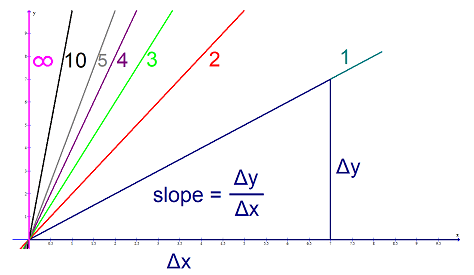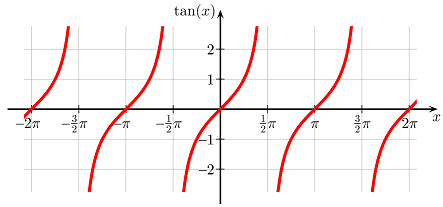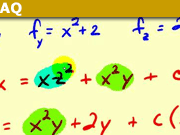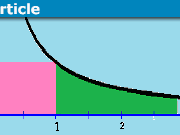Why Division by Zero is a Bad Idea
A division by zero is primarily an algebraic question. The reasoning therefore follows the indirect pattern of most algebraic proofs:
What if it was allowed?
Then we would get a contradiction, and a contradiction is the greatest enemy of mathematical rigor. Many students tried to find a way to divide by zero once in their lifetime. To be honest: It is possible! We could allow it! However, that would come at a price. We had to give up other laws which we did not want to lose; most of all the fact that ##0## and ##1## are two different numbers. A division by zero often results in the equation ##1=0## which would make both of them pretty useless. But it also causes problems for other, often unexpected rules and laws that we do not want to give up.
Why division by zero is a bad idea as it implies …
Table of Contents
10. 1=0.
This is the shortest argument of all:
$$
\dfrac{1}{0}=x \Longleftrightarrow 1=x\cdot 0=0
$$
9. All numbers are the same.
$$a\cdot 0=b\cdot 0 \Longrightarrow \dfrac{a}{0}=\dfrac{b}{0}=ba^{-1}\cdot\dfrac{a}{0}\Longrightarrow ba^{-1}=1\Longrightarrow a=b$$
8. Does numerator or denominator count?
A zero as a numerator makes a quotient vanish, and if the numerator and denominator are equal, then the quotient becomes one.
$$0=\dfrac{0}{x}=\dfrac{0}{0}=\dfrac{x}{x}=1$$
7. Division by zero equals zero.
$$1\cdot 0=2\cdot 0 \Longrightarrow \dfrac{1}{0}=\dfrac{2}{0}=\dfrac{1}{0}+\dfrac{1}{0}\Longrightarrow \dfrac{1}{0}=0$$
6. Division by zero equals infinity.
$$
\dfrac{1}{0}\stackrel{?}{=}\displaystyle{\lim_{n \to 0}\dfrac{1}{n}=\lim_{1/n \to \infty}\dfrac{1}{n}}=\infty
$$
5. Associativity breaks down.
$$\dfrac{1}{0}=x \Longleftrightarrow x\cdot 0=1 \Longleftrightarrow a=1\cdot a=(x\cdot 0)\cdot a \stackrel{(A)}{=}x\cdot(0\cdot a)=x\cdot 0=1$$
which is impossible for every ##a\neq 1.##
4. Distributivity breaks down.
$$\dfrac{1}{0}=x \Longleftrightarrow 1=x\cdot 0=x\cdot(1-1)\stackrel{(D)}{=}x\cdot 1-x\cdot 1= x-x= 0$$
which again contradicts ##1\neq 0.##
3. Infinity is not an option.
The difficulty by setting $$\dfrac{1}{0}:=\infty $$
is that infinity isn’t a number. Such a definition only shifts the ambiguity of a division by zero to the ambiguity of an infinitely large number. The problems are obvious:
$$
\begin{matrix}
\infty &+&\infty &=&\infty &\stackrel{?}{\Longrightarrow } &\infty &= &0\\
\infty &\cdot& \infty &=&\infty &\stackrel{?}{\Longrightarrow } &\infty &= &1
\end{matrix}
$$
And it goes on and on this way. Infinity isn’t well-defined. It is more like a large bin that swallows everything.
Let’s see whether L’Hôpital’s rule can help us,
$$
\displaystyle{\lim_{x \to 0}\dfrac{f(x)}{g(x)}=\lim_{x \to 0}\dfrac{f'(x)}{g'(x)}}
$$
where zeros and infinities on the left are explicitly allowed and only ##g'(0)\neq 0## and differentiability on the right are required. The condition on ##g'(0)## blocks the direct setting ##g’=0## or ##g=0.## If we set ##g'(x)=1## such that the condition holds, we get ##g(x)=x## and a denominator zero is not in sight. If we consider ##f(x)=x^{-1}## and ##f'(x)=-x^{-2}## we end up with
$$
\infty = \lim_{x \to 0}\dfrac{1}{x\cdot x}=\lim_{x \to 0}\dfrac{-1}{x^2\cdot 1}=-\infty
$$
which is obviously a problem. The missing differentiability at ##x=0## causes a contradiction.
2. The geometric point of view.

A slope of ##\dfrac{1}{0}## of a straight line is a vertical line, i.e. a line of infinite slope. We have already seen that infinity isn’t a good choice. It is the singularity of the tangent function at ##\pi/2## and we run into the same misery. Not only that we have a pole, we also have a sign change from ##-\infty ## to ##\infty ## depending on whether we approach from the left or the right.

1. ##\mathbf{0\not\in\mathbb{F}-\{0\}.}##
What looks like the most trivial argument is indeed the most subtle and my favorite one: ##0## as the neutral element of addition is not part of the multiplicative group ##\mathbb{F}^*=\mathbb{F}-\{0\}## of a field ##\mathbb{F}.## It has nothing to do with multiplication. The question of a multiplicative inverse of the neutral element of addition simply does not occur. It merely arises from our desire to consider fields as one set with two operations. However, they consist of two sets with two operations: ##(\mathbb{F},+)## and ##(\mathbb{F}^*,\cdot)##. The sets have many elements in common,
$$
\mathbb{F}^* \;\subset\; \mathbb{F},
$$
but they aren’t equal.
So why does the additive group contain the neutral element of multiplication, but the multiplicative group does not contain the neutral element of addition? This is primarily due to the way we construct number fields:
$$
\mathbb{N}\subset \mathbb{Z}\subset \mathbb{Q}\quad\text{ or }\quad\mathbb{N}\subset \mathbb{Z}\subset \mathbb{Z}_p=\mathbb{Z}/p\mathbb{Z}\,.
$$
We start with an additive group, discover a ring structure, and in case we get an integral domain, our ring allows a quotient field. Now, zero is a zero divisor, hence outside the set of elements we can construct quotients for; at least not by the usual method
$$
\dfrac{a}{b} \sim \dfrac{s}{t} \Longleftrightarrow a\cdot t= b\cdot s
$$
and as long as ##1\neq 0.## Rings do not necessarily contain the element ##1.## For example, all polynomials ##p(x)## with ##p(0)=0## build a ring without ##1.## On the other hand, ##\mathbb{Z}/n\mathbb{Z}## is only an integral domain, i.e. allows a quotient field, if ##n## is prime. These are the restrictions we have to deal with if we follow the constructional path from an additive group over a ring to a field. If we were to start with two different groups from scratch and search for a combination, then we would end up with free, direct, or semidirect products, which are different algebraic subjects.
Addition and multiplication in a field are only connected by the distributive laws inherited from its ring structure
$$
a\cdot (b+c)=a\cdot b+a\cdot c \quad\text{ and }\quad(a+b)\cdot c= a\cdot c+b\cdot c
$$
These two equations are the only ones where both operations meet. We have already seen that using them to define ##\frac{1}{0}## leads to ##1=0.## This cannot be a field anymore since ##1## would be a zero divisor and as such could not be part of the multiplicative group, which is a contradiction.
Extended Reals and Hyperreals
The extended real numbers are ##overline{mathbb{R}}=mathbb{R}cup {pm infty}.## They play a role in analysis as seen from a measure theoretical point of view, mainly to simplify statements about intervals or possible limits. Hewitt, Stromberg (Real and Abstract Analysis, GTM 25) define them as follows (bolding by me).
Definition: ##\infty ## and ##-\infty ## be two distinct objects, neither of which is a real number. The set ##\overline{\mathbb{R}}## is known as the set of extended real numbers. We make ##\overline{\mathbb{R}}## a linearly ordered set by taking the usual ordering in ##\mathbb{R}## and defining ##-\infty <\infty ## and ##-\infty <x<\infty ## for each ##x\in \mathbb{R}.##
The particular caution Hewitt, Stromberg take to avoid infinities being mistaken for numbers shows us that extended reals will not solve our problem to make ##\frac{1}{0}## a number. The extended real numbers are primarily a topological rather than an algebraic concept, and dividing points or solitons is hardly a promising approach.
When Newton and Leibniz performed their differential calculus with “fluxions” or “monads”, they used infinitesimal numbers, and Euler and Cauchy also found them useful. Nevertheless, these numbers were viewed skeptically from the beginning. As analysis was put on a rigorous basis by the introduction of the epsilon-delta definition of the limit and the definition of real numbers by Cauchy, Weierstrass, and others in the 19th century, infinitesimal quantities weren’t required anymore. However, Abraham Robinson showed in the 1960s how infinitely large and small numbers can be defined in a strictly formal way, opening up the field of nonstandard analysis with so-called hyperreal numbers ##\;{}^*\mathbb{R}.## [de.wikipedia.org: Hyperreal Numbers] 1)
The hyperreal numbers, a term introduced by Edwin Hewitt in 1948, satisfy the transfer principle, a rigorous version of Leibniz’s heuristic law of continuity. It is the central concept that makes nonstandard analysis at least analysis. It means that all true statements in real analysis, i.e. about ##\mathbb{R},## remain true in nonstandard analysis, i.e. about ##{}^*\mathbb{R}.## An example of how the hyperreals work is the derivative of a function
$$
f'(x)=st\left(\dfrac{f(x+\varepsilon )-f(x)}{\varepsilon }\right)
$$
where ##\varepsilon ## is an infinitesimal and ##st## is the standard part function that maps any hyperreal number to the nearest real number. This definition doesn’t need quantifiers anymore, and neither does it use the epsilontic of a limit. The transfer principle does not mean that real and hyperreal numbers behave the same, only that we do not lose what we already know. For example, we still have differentiation but ##{}^*\mathbb{R}## is not Archimedean anymore. Similarly, the casual setting ##\frac{1}{0}=\infty ## is invalid since the transfer principle applies and zero has no multiplicative inverse. The rigorous counterpart of such a calculation would be
$$
\dfrac{1}{\varepsilon }= \dfrac{\omega }{1} \text{ if }\varepsilon \neq 0
$$
where ##\varepsilon ## is an infinitesimal and ##\omega ## an infinite number. Thus, the transfer principle that we need to save what we already know about analysis, also prohibits us from making ##\frac{1}{0}## a number, even in the extended set of hyperreal numbers.
_____________
1) Details about hyperreal numbers can be found on the various language versions of Wikipedia or by searching for “hyperreal” among the Insight articles at PF.










I do not dare to imagine the situation if I had given a "insulting other members" warning with its 4 points or a thread ban.
"
I don't see any ground in @symbolipoint's post for any such warning, or for your interpretation of what he said as a "provocation". Making a comment without having read the article is premature, sure, but that's not a personal attack on you. It's just someone making a premature comment, for which the obvious response is just what I said before.
I don't know what you mean. Here is what you explicitly posted:
"
I posted:
"
Sorry, but your comment is meaningless. It contains a lot of hidden assumptions and "meaning" is not quantifiable, it is an opinion, not a fact. By what right do you make assumptions like 1≠0?
"
I kept it unspecified. "like" clearly indicated that I was guessing.
"
You call his post "meaningless" and say he is making hidden assumptions. What are you not "sure" about?
"
"meaningless" was a tit-for-tat response. I am not sure about what he did assume and what not. ##1\neq 0## is again a hidden assumption. We cannot know what he assumed. That's what I am not sure about. My attempt with "like" should have transported this. Sorry, if my German understanding of linguistic tools does not match the English usage.
"
If the issue was that he didn't read your article, a simple response like "You say you haven't read the article. Please do so. It addresses the issues you are raising." And then stop.
We moderators routinely tell people on these forums not to take responses personally, not to get "dragged down to" what we perceive to be a lower level that someone else is at, and to stick to the topic of discussion. It seems to me that we ought to be able to take our own advice.
"
I do not dare to imagine the situation if I had given a "insulting other members" warning with its 4 points or a thread ban. Stop measuring with two scales, varying by the situation and the argument that suits you.
Sure?
"
I don't know what you mean. Here is what you explicitly posted:
"
Sorry, but your comment is meaningless. It contains a lot of hidden assumptions and "meaning" is not quantifiable, it is an opinion, not a fact. By what right do you make assumptions like ##1\neq 0##?
"
You call his post "meaningless" and say he is making hidden assumptions. What are you not "sure" about?
"
Do not reverse cause and effect, please. I answered at the level I had been dragged down to. It was a personal from post #3 on: "I haven't read it [the article] but it [the title] is meaningless!" Hello? How else do you read this as a provocation?
"
If the issue was that he didn't read your article, a simple response like "You say you haven't read the article. Please do so. It addresses the issues you are raising." And then stop.
We moderators routinely tell people on these forums not to take responses personally, not to get "dragged down to" what we perceive to be a lower level that someone else is at, and to stick to the topic of discussion. It seems to me that we ought to be able to take our own advice.
And that's fine, but it's not what I am objecting to. I am objecting to you criticizing @symbolipoint for making a "hidden assumption" that ##1 \neq 0##
"
Sure? I haven't seen any assumptions. I could only guess.
"
Again, you criticize others for doing the same thing that you yourself do. Why is it wrong for others but not for you?
"
Do not reverse cause and effect, please. I answered at the level I had been dragged down to. It was a personal from post #3 on: "I haven't read it [the article] but it [the title] is meaningless!" Hello? How else do you read this as a provocation?
That's true, but it just raises the question of why, if that was the meaning @fresh_42 was using for ##1## and ##0##, he didn't say so explicitly. If one is going to criticize others for making hidden assumptions, one should not make them oneself.
For the general case, yes. But I see nothing in the article until point #1, near the end of that section, that even raises the general case. When I read the start of the article, certainly through point #10, I see ##1## and ##0## being used to denote those integers (which is of course what a lay person is going to think those notations mean), which is much more specific than just "the neutral elements with respect to multiplication and addition", and for which ##1 \neq 0## is obvious.
"
Yes, if the context was the whole numbers, it is not even an assumption, there ##1## and ##0## are different.
Useful, meaningful, impossible. Those words can hardly be argued upon. They reflect an opinion. That's why I argued against their use.
"
And that's fine, but it's not what I am objecting to. I am objecting to you criticizing @symbolipoint for making a "hidden assumption" that ##1 \neq 0## (and I've already commented about the "hidden" part, which I don't think is justified), when you yourself make the same assumption. If your objection was that "meaningless" is an opinion, you should have limited your objection to that.
Also, if "meaningless" is an opinion and doesn't help discussion, why did you yourself use it? You said @symbolipoint's comment was "meaningless". Again, you criticize others for doing the same thing that you yourself do. Why is it wrong for others but not for you?
I don't think his assumption that ##1 \neq 0## is any more "hidden" than yours. Both of you are simply relying on the obvious fact that in order to have a useful number system at all, different numerals, such as ##0## and ##1##, should refer to different (i.e., unequal) numbers.
In fact @symbolipoint doesn't even mention the number ##1## in his post; the number he picked is ##10##. So his assumption is actually that ##10 \neq 0##, not that ##1 \neq 0##. Where in your article do you explicitly state that you are assuming that ##10 \neq 0##? Wouldn't be better to just acknowledge that both of you are assuming that numbers that aren't ##0##, um, aren't ##0##? And that that assumption is fine because you have to make it to have a useful number system at all?
"
Useful, meaningless, impossible, unusual. Those words can hardly be argued upon. They reflect an opinion. That's why I argued against their use. It is an implicit judgment ahead of the argument. It is called polemic in German. But I did not write what we call a pamphlet, I wanted to do math. This discussion here was polemic from the start and still is, despite some user's efforts to make it a scientific discussion.
I don't think his assumption that ##1 \neq 0## is any more "hidden" than yours. Both of you are simply relying on the obvious fact that in order to have a useful number system at all, different numerals, such as ##0## and ##1##, should refer to different (i.e., unequal) numbers.
In fact @symbolipoint doesn't even mention the number ##1## in his post; the number he picked is ##10##. So his assumption is actually that ##10 \neq 0##, not that ##1 \neq 0##. Where in your article do you explicitly state that you are assuming that ##10 \neq 0##? Wouldn't be better to just acknowledge that both of you are assuming that numbers that aren't ##0##, um, aren't ##0##? And that that assumption is fine because you have to make it to have a useful number system at all?
"
There is a bit more to it. I am guessing that for @fresh_42 1 and 0 stand for the neutral elements with respect to multiplication and addition (not just the names of two elements, so if the elements are different you choose different notations). And the question whether they are different, or the assumption that they are, is meaningful.
You could use rings with zero divisors, where division cannot be defined also for non-zero elements. It may be insightful.
"
Yes. I even thought about adding my example with ##\mathbb{Z}_4## and ##V_4## but I didn't want to make it complicated and write a mathematical essay. This would have been over at the ##1=0,## or instead with the explanation of my favorite argument ##0\not\in \mathbb{F}^*.## A discussion would then become pure mathematics about zero-divisors, rings, hyperreals, etc. Those words occurred, but not as a main topic. I only wanted to bring those arguments on the table that I have read here throughout the years when people come and try to make sense of ##1/0,## especially setting it ##\infty .##
The difference is that @symbolipoint said "meaningless" based on hidden assumptions.
"
I don't think his assumption that ##1 \neq 0## is any more "hidden" than yours. Both of you are simply relying on the obvious fact that in order to have a useful number system at all, different numerals, such as ##0## and ##1##, should refer to different (i.e., unequal) numbers.
In fact @symbolipoint doesn't even mention the number ##1## in his post; the number he picked is ##10##. So his assumption is actually that ##10 \neq 0##, not that ##1 \neq 0##. Where in your article do you explicitly state that you are assuming that ##10 \neq 0##? Wouldn't be better to just acknowledge that both of you are assuming that numbers that aren't ##0##, um, aren't ##0##? And that that assumption is fine because you have to make it to have a useful number system at all?
No, it isn't. I'm not arguing that you were wrong to say that division by zero could be allowed. I am arguing that you are unfairly criticizing @symbolipoint for making an assumption that you yourself make in #10 of the article. Your #10 assumes without argument that ##1 \neq 0## (if you want to quibble, you could say that it assumes that ##1 = 0## would be "useless", not that it would be an outright contradiction, but I don't see how that changes anything material). So on what grounds are you criticizing @symbolipoint for making the same assumption?
If you're going to call out other people for lack of logical rigor, you need to first make sure your own logic is impeccable.
"
The difference is that @symbolipoint said "meaningless" based on hidden assumptions. I criticized a) that "meaningless" is nothing an argument can be based on, and b) that his assumptions are not stated; mine were.
Number 10 came right behind that text.
"
The text that explicitly says "0 and 1 are two different numbers". In other words, ##1 \neq 0##. So, again, on what grounds are you criticizing @symbolipoint for saying the same thing?
The division performed in the second table would not pass judgment in any court of law as a definition of either multiplication or division. For example, one of the table entries has ##1 \cdot 2 = 3##. To say the least, this is a very unusual result.
"
To say the least, you haven't understood that ##0## is the neutral element of multiplication in that example and that it was a potential counterexample. Your rhetoric said "meaningless" and that is not warranted. It cannot be proven. Even "unusual" is borderline since counterexamples are usually unusual.
I'm so tired of your attempts to
bullypull me into personal arguments in a language you know better than me.That is wrong.
"
No, it isn't. I'm not arguing that you were wrong to say that division by zero could be allowed. I am arguing that you are unfairly criticizing @symbolipoint for making an assumption that you yourself make in #10 of the article. Your #10 assumes without argument that ##1 \neq 0## (if you want to quibble, you could say that it assumes that ##1 = 0## would be "useless", not that it would be an outright contradiction, but I don't see how that changes anything material). So on what grounds are you criticizing @symbolipoint for making the same assumption?
If you're going to call out other people for lack of logical rigor, you need to first make sure your own logic is impeccable.
Here is a set with four numbers ##\{0,1,2,3\}## that allows a division by zero
"
Ok, then this set of numbers contradicts #10 in your article. Is your article wrong?
By making it by fiat, as far as I can see. Your #10 in the article claims that ##1 = 0## is a contradiction. No argument is given, so you're assuming that ##1 \neq 0##. So what's the problem with @symbolipoint doing the same?
"
That is wrong. I explicitly said
"
To be honest: It is possible! We could allow it! However, that would come at a price. We had to give up other laws which we did not want to lose; most of all the fact that 0 and 1 are two different numbers.
"
That was the difference. Number 10 came right behind that text.
By what right do you make assumptions like ##1\neq 0##? My article deals with that kind of assumption
"
By making it by fiat, as far as I can see. Your #10 in the article claims that ##1 = 0## is a contradiction. No argument is given, so you're assuming that ##1 \neq 0##. So what's the problem with @symbolipoint doing the same?
Maybe belittling is the way you do things, as for example your reply to symbolipoint in post 4:
"
The art of the argument. Pure defence.
"
However, it is possible to set someone straight in this world without belittling them.
"
Not by using judgments as arguments. Patronizing is a declaration of didactical bankruptcy.
No, not in this world. The decoupling of them is artificial and far from reality. Belittling someone's curiosity is ad hominem. Full stop.
"
Maybe belittling is the way you do things, as for example your reply to symbolipoint in post 4:
"
Sorry, but your comment is meaningless.
"
However, it is possible to set someone straight in this world without belittling them.
Isn't point 6 a circular argument? It appears to me to be a simple replacement of ##n \rightarrow 0## with ##1/n \rightarrow \infty##.
"
The second equation, yes, but it isn't a conclusion, just a different way to write something. The problem lies in the first "equation".
It is a judgment about the question, but not necessarily about the person asking the question.
"
No, not in this world. The decoupling of them is artificial and far from reality. Belittling someone's curiosity is ad hominem. Full stop.
"
Baloney. A person who is in the process of learning may well have ideas that are in conflict with reality, and so could ask a question that is "meaningless."
"
This only shows a teacher's didactic incompetence in my mind. Yes, old school is based on punishment, I know this. However, I do not find this concept convincing.
Um, but since when calling a question "meaningless" is patronizing?
"
"
It is a judgment. It also says, that people who ask this, have a meaningless question. This is patronizing.
"It is a judgment about the question, but not necessarily about the person asking the question.
"
"Meaningless" is a word that has no place in education.
"Baloney. A person who is in the process of learning may well have ideas that are in conflict with reality, and so could ask a question that is "meaningless."
"
It belittles people.
"Correcting misguided students can be done in a way that does not belittle them, so the blanket statement above is incorrect.
"
Here is a set with four numbers {0,1,2,3} that allows a division by zero:
"The division performed in the second table would not pass judgment in any court of law as a definition of either multiplication or division. For example, one of the table entries has ##1 \cdot 2 = 3##. To say the least, this is a very unusual result.
Is that Arithmetic, as might be understood of a high school or early university student?
"
Depends on the laziness of the teacher.
Possibly, just possibly, the more common wording used was "impossible" more than "meaningless" in regard to Division By Zero. Memory about this is not perfect.
"
Impossible is wrong, too. It is possible, see post #13.
"
Many students tried to find a way to divide by zero once in their lifetime. To be honest: It is possible! We could allow it! However, that would come at a price. We had to give up other laws which we did not want to lose …
"
That is the point. It simply leads to constructions that we do not want to have. Judgments like "impossible" or "meaningless" are based on hidden assumptions, mainly on what people would call "normal arithmetic". Hiding assumptions and base a judgment on those is not my understanding of science.
$$
\begin{array}{|c|c|c|c|c|}
+ & 0 & 1& 2 & 3\\
\hline
0& 0 & 1&2&3\\
\hline
1& 1 & 2&3&0\\
\hline
2& 2 & 3&0&1\\
\hline
3& 3 & 0 &1&2\\
\hline
\end{array} \qquad
\begin{array}{|c|c|c|c|c|}
\cdot & 0 & 1& 2 & 3\\
\hline
0& 1 & 0 &2 &3\\
\hline
1& 0 & 1 & 3&2 \\
\hline
2& 2 &3 &1 &0\\
\hline
3& 3& 2& 0&1\\
\hline
\end{array} $$
This is an admissible structure. By which criteria do you call this set "meaningless"?
Um, but since when calling a question "meaningless" is patronizing?
"
It is a judgment. It also says, that people who ask this, have a meaningless question. This is patronizing.
"
At my faculty we even had a lecture called "Meaningless questions in hydrodynamics". The word is not a problem, understanding its meaning is.
"
"Meaningless" is a word that has no place in education. It belittles people. And it cannot be measured, it's merely an opinion by someone who does not want to be disturbed by someone else's question.
In pure truth I WAS in fact, along with other students in my classes, taught that division by zero is "meaningless". Not that it is a "bad idea". The choice of words used for our instruction was as I say.
"
It is possible, so it is not meaningless. It is a bad idea because the consequences are severe. People quite often think that
$$
\dfrac{1}{0}=\infty
$$
is a valid point of view. They deserve to know why it is not. And, and this is not trivial, that
$$
\dfrac{1}{\varepsilon }=\dfrac{\omega }{1}
$$
is something else.
"
I have not read the article, or the posting into the continued link.
"
… but I have an opinion …
"
Division by zero is meaningless.
"
… is a declaration of <censored>.
I tried a scientific approach, instead of calling out people who ask this question. If it does not please you, stop commenting. You already said that you stopped reading what you commented about here, so I do not need to say it.
I still believe that PF can be I place where kids and students learn something, despite some patronizing <censored> who always know things better and belittle those who have questions they consider "meaningless".
I have not read the article, or the posting into the continued link.
Division by zero is meaningless. You could try this:
Start with a number, any non negative number greater than 0. Ten, for example. Now take a divisor, being 0. How many times can you subtract 0 from 10, revise the result, and then continue subtraction of 0, until your result is too small to subtract another 0? FOREVER! This will never end. Division By Zero is meaningless.
"
Sorry, but your comment is meaningless. It contains a lot of hidden assumptions and "meaning" is not quantifiable, it is an opinion, not a fact. By what right do you make assumptions like ##1\neq 0##? My article deals with that kind of assumption and is meant to answer the FAQ about "division by zero". Calling it "meaningless" is a patronizing standpoint towards all the kids who come here and ask about it.